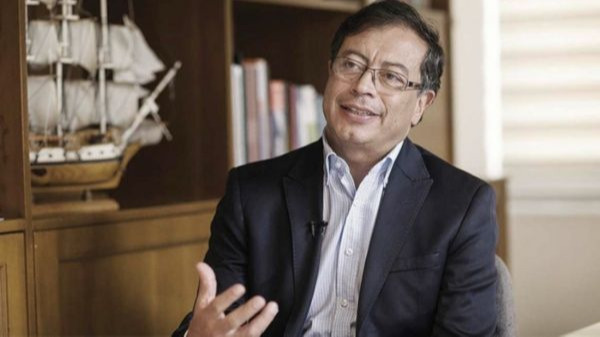
Petro affirmed: "Why do we want to be a majority in Congress? There is no other objective than to pass some reforms. If the reforms are not approved, it is not worth having majorities."
Bogota, June 27 (RHC)-- The president-elect of Colombia, Gustavo Petro, says he will create a consensus among progressive forces that want a transformation for the South American country, with the aim of seeking common purposes and effect social reforms.
In an interview with the portal Cambio, the first since he was elected president in the elections held last Sunday, June 19th, Petro spoke of a series of urgent issues that he will address as soon as he starts his mandate on August 7th.
Regarding the changes proposed by his next government, Petro proposes to break with sectarianism, both from the right and the left, for which it is necessary to talk to everyone and build agreements.
He admitted that it is necessary to make agreements to move forward with an agenda of reforms and that it is possible that some of his allies may be annoyed with the coalitions he will have to form to move forward with his legislative plan.
Sectarianism in Colombia leads to violence, said the president-elect, leader of the center-left Historic Pact coalition. "What we have achieved, and there is a conversation already planned with Álvaro Uribe Vélez, there is another one planned with Rodolfo Hernández, is basically to build a climate that I would call of peace, of dialogue, without thinking about unanimism, because that will never exist in a human society."
In the interview with Cambio, the president-elect spoke of his potentially tense relationship with the military and police, of his integral peace plan, and of a bold proposal he will make to the United States to modify the application of extradition.
For the next Colombian head of state, the National Agreement has to be generated in some spaces that are not properly parliamentary, which are social, where there is also politics, obviously.
"In the first place, I would like those spaces to be regional. To face the conflict from the outset. Because the conflict we have today has some regional specificities, it cannot be dealt with homogeneously at the national level", he added.
Regarding the pacification of the country, Petro said that he has asked the Catholic Church to establish the channels for an integral peace process in Colombia. "Integral means that it is not simply with what is still today considered insurgency. But open to everything that means the use of illegal weapons. Well, we are going to make that official. I believe that the Catholic Church today must play a fundamental role in the construction of peace in Colombia."
On the normalization of relations with Venezuela, Petro said that their common border is his main concern and that he sees real possibilities to develop that region economically.
"Cúcuta is not an Andean town far from the sea. Cúcuta is a coastal town. It is one hour from the sea. So how is it that we don't take advantage of that to industrialize the territory? In other words, because of our political difficulties between nations, we do not take advantage of the enormous territorial advantage that exists there."
Petro also proposed to stop the extradition to the United States of people who take part in an eventual process of "peaceful dismantling of drug trafficking."

